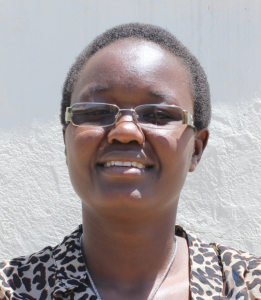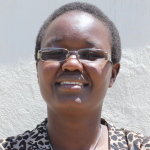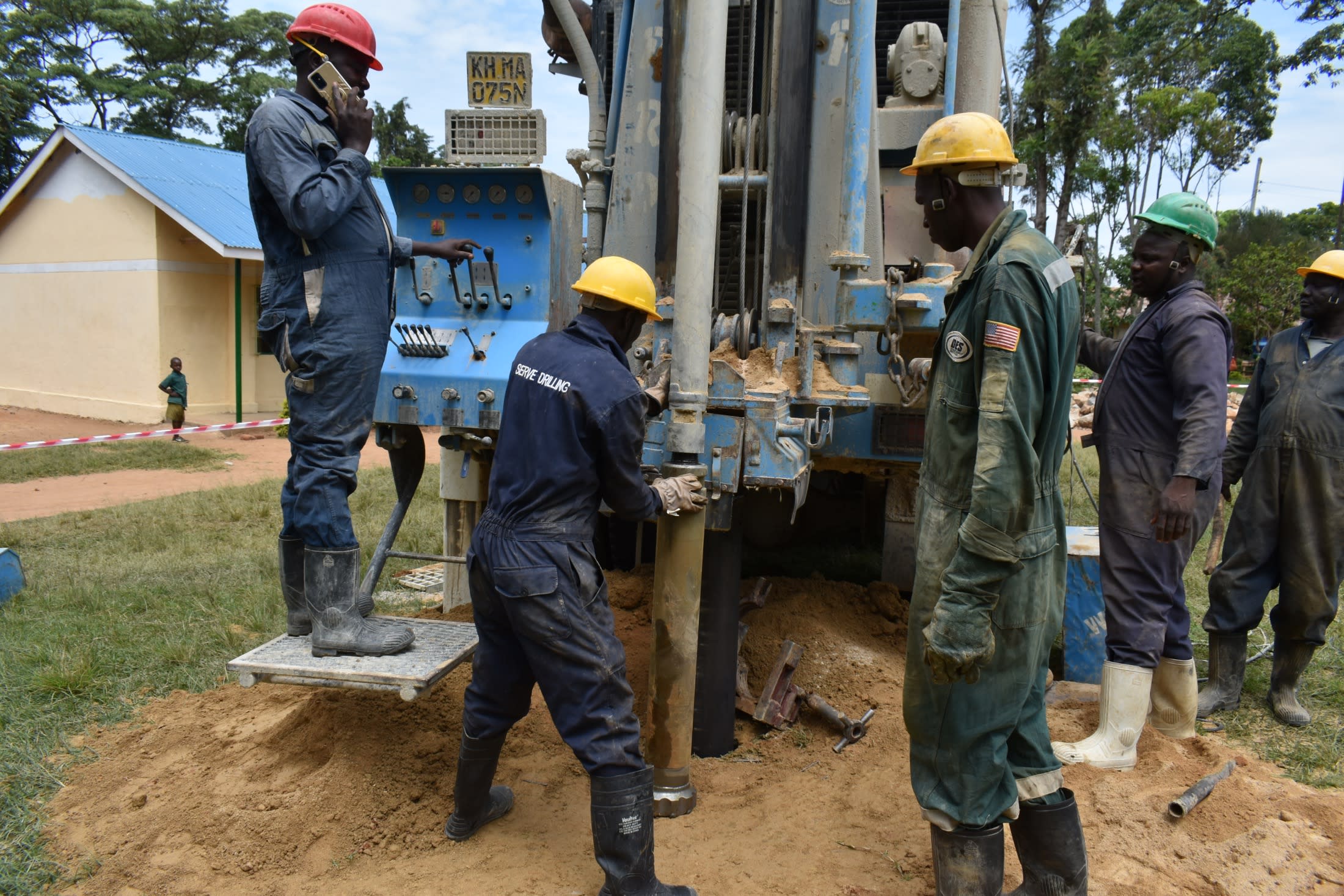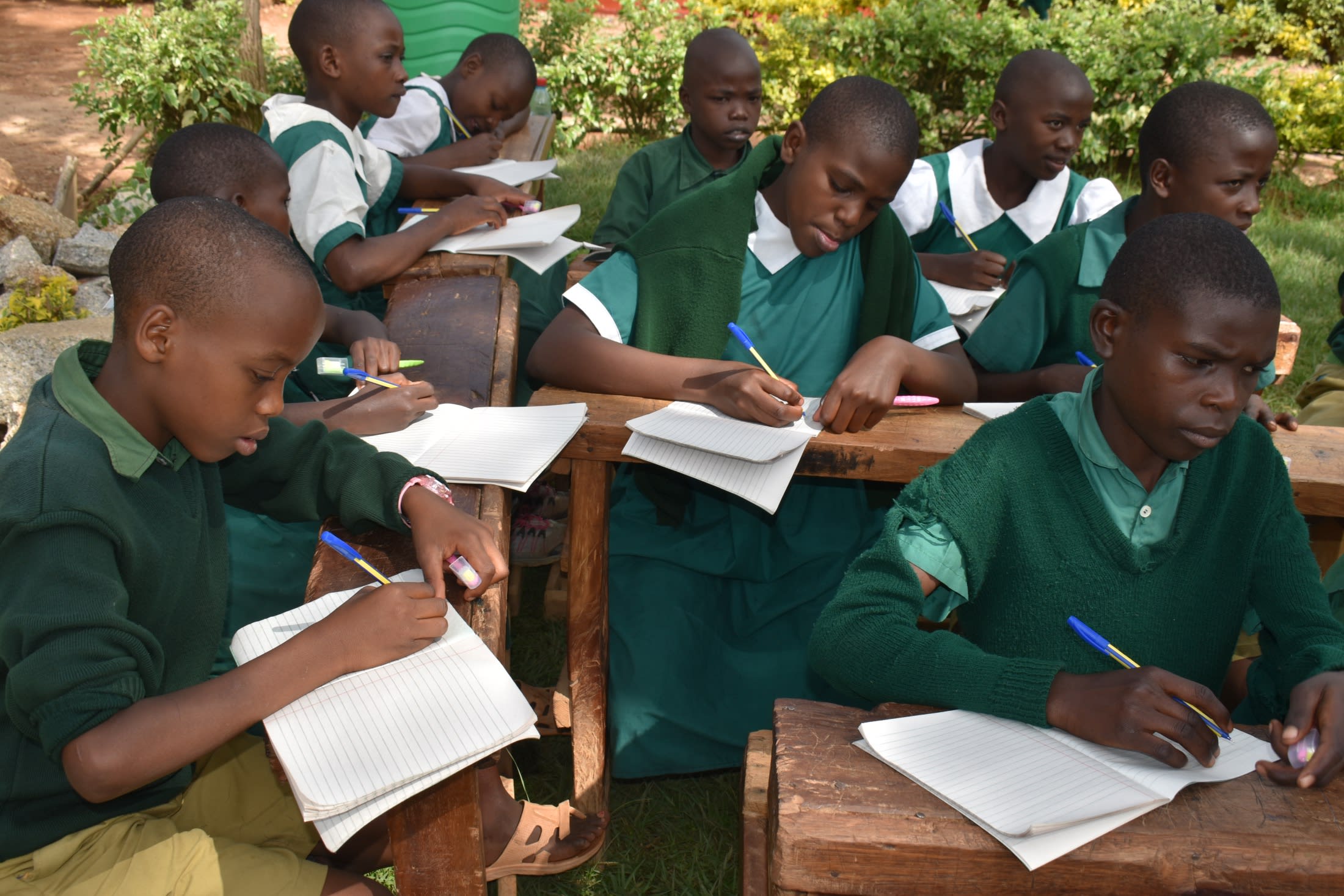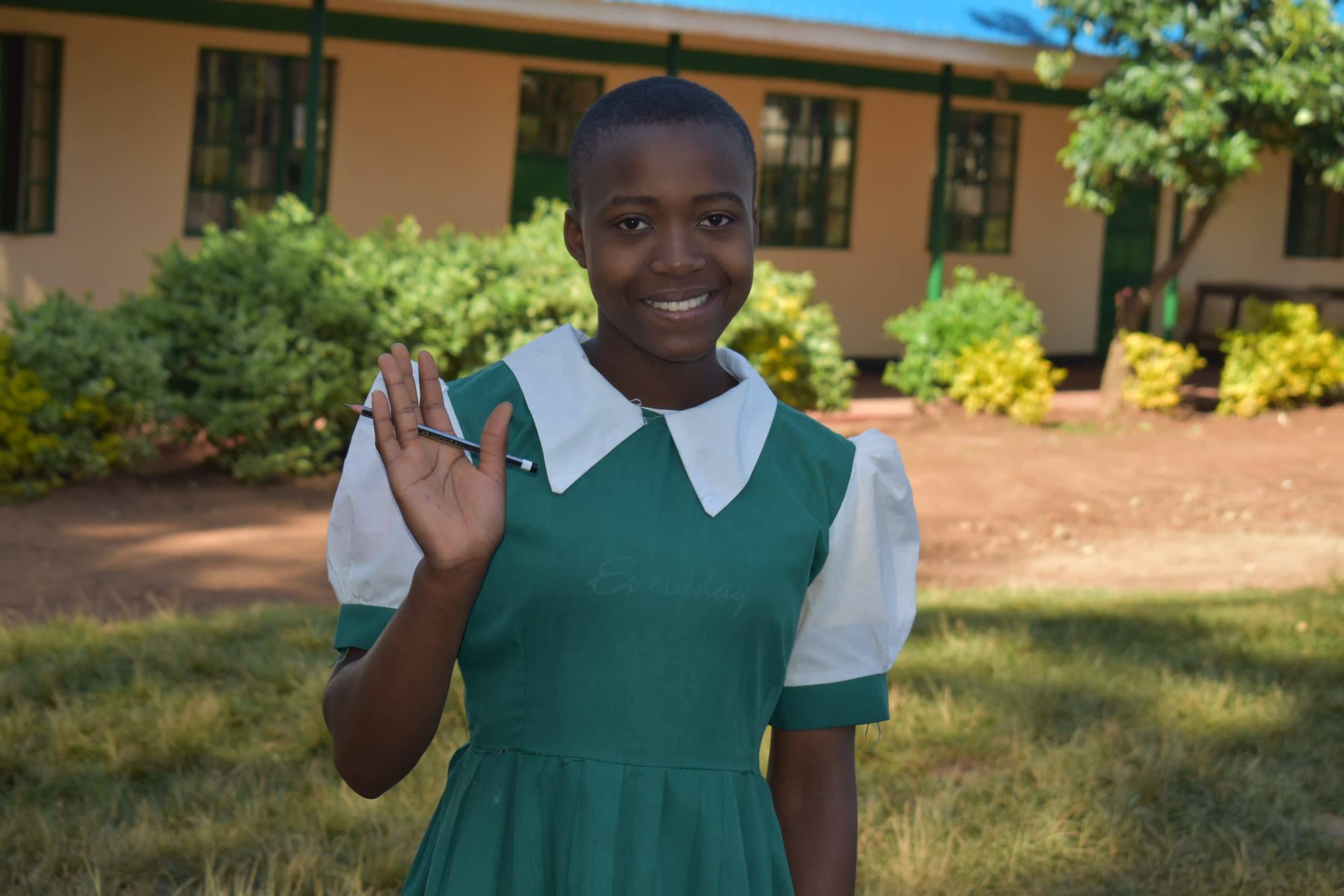The 449 students of Senende Primary School wake up early every morning to fetch water from the spring near their homes. Their school cannot provide sufficient water, so they must carry their full water containers the long distance to the school.

Understandably, students arrive exhausted, but they try their best to concentrate on learning until lunchtime. However, it isn't easy, especially when they know they must head back to the spring and stoop down on the spring's cement platform again to collect more water during their lunch period. But sadly, after all that expended time and energy, the water is very often still contaminated.
The school has a rain harvesting tank, but the 30,000-liter capacity is not large enough to sustain the entire student population and quickly runs dry.
Every Friday, the school attempts to buy water from a nearby church to clean the school. At times, they do not have the needed money, so pupils must sweep the classrooms instead of washing them, making the learning environment dirty and dusty and causing a lot of discomfort to the pupils while in class.
Student Sharleen K, in the photo below at the spring, shared, "I don't wash [my] hands regularly because we do not have enough water in school, and this makes me sad because we even sit in dirty and dusty classrooms. We do not have enough water to clean our classrooms and this has led to poor sanitation and hygiene in school."

Head Teacher Kipkosgey Chilan, in front of the school's rain tank in the photo below, shared his concerns regarding the school's ongoing water challenges. "The general sanitation and hygiene in [the] school are worrying because we do not have enough sanitation facilities. This has even become worse because we have no water in [the] school, and it is a challenge to run the school without water. Sometimes we are forced to buy water from the church so that we [can] help the children to sit in a clean environment. But it is not easy because we are not able as a school to buy water every day."

The proposed borehole will help students regain their time and access consistent, sufficient, clean drinking water. The sanitation and hygiene of the school will also improve, making it easier for students to concentrate once again.
What We Can Do:
New Well
We conducted a hydrogeological survey at this school and the results indicated the water table beneath it is an ideal candidate for a borehole well. Due to a borehole well's unique ability to tap into a safe, year-round water column, it will be poised to serve all of the water needs for this school's large population, even through the dry months.
The school will help collect the needed construction materials such as sand, rocks, and water for mixing cement. They will also provide housing and meals for the work team, in addition to providing local laborers. We will complement their materials by providing an expert team of artisans and drilling professionals, tools, hardware, and the hand-pump. Once finished, water from the well will then be used by the school's students and staff for drinking, handwashing, cooking, cleaning, and much more.
Handwashing Stations
There is currently nowhere for students to wash their hands after using the latrines or before eating lunch, let alone the water to do so.
The student health club will oversee the two new handwashing stations we will provide, and make sure they are kept clean and in working condition. The club leaders will fill the handwashing stations with water daily and make sure they are always supplied with a cleaning agent such as soap or ash.
VIP Latrines
We will construct two triple-door latrine blocks using local materials that the school will help gather. Three doors will serve the girls and three doors will serve the boys. All of these new latrines will have cement floors that are designed to be easy to use and to clean. And with a borehole right on school property, there should be enough water to keep them clean.
Training on Health, Hygiene, COVID-19, and More
We will hold a one-day intensive training session with students, teachers, and parents. This training will cover a wide range of topics including COVID-19 symptoms, transmission routes, and prevention; personal and environmental hygiene; and the operation and maintenance of the borehole, latrines, and handwashing stations. There will be a special emphasis on handwashing.
Our team of facilitators will use a variety of methods to train, including participatory hygiene and sanitation transformation, and asset-based community development. We will initiate a student health club, which will prepare students to lead other pupils into healthy habits at school and at home. We will also lead lectures, group discussions, and provide illustrative handouts to teach health topics and ways to promote good hygiene practices within the school including handwashing and water treatment. We will then conduct a series of follow-up trainings before transitioning to our regularly scheduled support visits throughout the year.
We and the school strongly believe that all of these components will work together to improve standards at this school, which will help lead to better student academic performance and will help unlock the opportunity for these students to live better, healthier lives.

 Borehole Well and Hand Pump
Borehole Well and Hand Pump
 Rehabilitation Project
Rehabilitation Project












